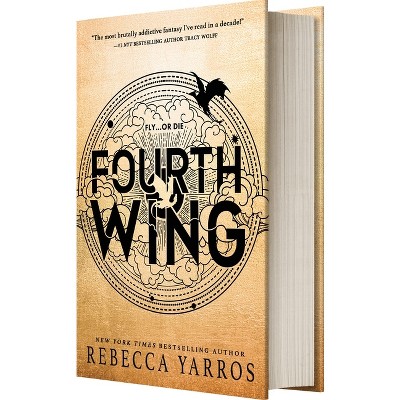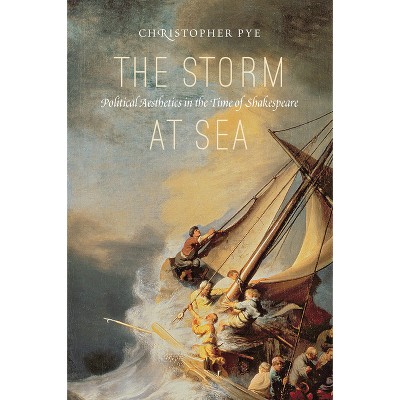$35.49 when purchased online
Target Online store #3991
About this item
Highlights
- SHORTLISTED, 2024 MSA FIRST BOOK PRIZE Topothesia reads urban planning as a mode of speculative fiction, one inextricably linked to histories of British colonialism and liberalism through a particular understanding of place.
- About the Author: Ameth Vijay is Assistant Professor of Literature at the University of California, San Diego.
- 272 Pages
- Literary Criticism, European
Description
About the Book
"Topothesia reads urban planning as a mode of speculative fiction, one inextricably linked to histories of British colonialism and liberalism through a particular understanding of place. The book focuses on town planning from the late nineteenth century to the present day, showing how the contemporary geography of Britain--sharply unequal and marked by racial division-- continues ideologies of place established in colonial contexts. Specifically, planning allows for the speculative construction of future places that are both utopian in their ability to resolve political disagreement and at the same tantalizingly realizable, able to be produced in concrete reality. This speculative imaginary, I argue, is only possible within the ideological framework of colonialism and the history of empire within which it developed"--Book Synopsis
SHORTLISTED, 2024 MSA FIRST BOOK PRIZE
Topothesia reads urban planning as a mode of speculative fiction, one inextricably linked to histories of British colonialism and liberalism through a particular understanding of place. The book focuses on town planning from the late nineteenth century to the present day, showing how the contemporary geography of Britain--sharply unequal and marked by racial division--continues ideologies of place established in colonial contexts. Specifically, planning allows for the speculative construction of future places that are both utopian in their ability to resolve political disagreement and at the same tantalizingly realizable, able to be produced in concrete reality. This speculative imaginary, I argue, is only possible within the ideological framework of colonialism and the history of empire within which it developed. Topothesia refers to a rhetorical device employing the vivid depiction of an often-imaginary place. This device, Vijay shows, helps us understand urban planning as a narrative genre, one that, even in its most mundane documents, is compelled to produce elaborate fantasies of future places. The book examines specific planning movements over time to understand the form and the stakes of their speculative worlds. In building these worlds, the book shows, planners continually coopted literary critiques of the present and reveries of the future, retaining literature's aesthetics while eschewing its politics. At the same time, Vijay shows, writers and artists have dwelled within and against these colonial imaginaries to seek other means of representing place.From the Back Cover
"Toposthesia joins a growing body of urban studies and critical geography-influenced cultural critique that is making waves not just in academic study but well beyond, in zones of activism, public writing, and even university critique. Vijay fleshes out colonial and neocolonial continuities between time periods in policy, ethos, and language."--Anjuli Raza Kolb, University of Toronto
"Vijay's book is ambitious and wide-ranging, covering documentaries, architectural design manuals, theories of planning, and advertisements, in addition to realist novels. The book participates in, and pushes in new directions, critical practices in literary studies by drawing together cultural objects across modernist and postcolonial eras and challenging periodizing models that separate these."--Nicole Rizzuto, Georgetown University Topothesia reads urban planning as a mode of speculative fiction, one inextricably linked to histories of British colonialism and liberalism through a particular understanding of place. The book focuses on town planning from the late nineteenth century to the present day, showing how the contemporary geography of Britain--sharply unequal and marked by racial division--continues ideologies of place established in colonial contexts. Specifically, planning allows for the speculative construction of future places that are both utopian in their ability to resolve political disagreement and at the same tantalizingly realizable, able to be produced in concrete reality. This speculative imaginary, I argue, is only possible within the ideological framework of colonialism and the history of empire within which it developed. Topothesia refers to a rhetorical device employing the vivid depiction of an often-imaginary place. This device, Vijay shows, helps us understand urban planning as a narrative genre, one that, even in its most mundane documents, is compelled to produce elaborate fantasies of future places. The book examines specific planning movements over time to understand the form and the stakes of their speculative worlds. In building these worlds, the book shows, planners continually coopted literary critiques of the present and reveries of the future, retaining literature's aesthetics while eschewing its politics. At the same time, Vijay shows, writers and artists have dwelled within and against these colonial imaginaries to seek other means of representing place. Ameth Vijay is Assistant Professor of Literature at the University of California, San Diego.Review Quotes
Topothesia joins a growing body of urban studies and critical geography-influenced cultural critique that is making waves not just in academic study but well beyond, in zones of activism, public writing, and even university critique. Vijay fleshes out colonial and neocolonial continuities between time periods in policy, ethos, and language.-- "Anjuli Raza Kolb, University of Toronto"
Vijay's book is ambitious and wide-ranging, covering documentaries, architectural design manuals, theories of planning, and advertisements, in addition to realist novels. The book participates in, and pushes in new directions, critical practices in literary studies by drawing together cultural objects across modernist and postcolonial eras and challenging periodizing models that separate these.-- "Nicole Rizzuto, Georgetown University"
About the Author
Ameth Vijay is Assistant Professor of Literature at the University of California, San Diego.Dimensions (Overall): 9.0 Inches (H) x 6.0 Inches (W) x .73 Inches (D)
Weight: 1.06 Pounds
Suggested Age: 22 Years and Up
Number of Pages: 272
Genre: Literary Criticism
Sub-Genre: European
Publisher: Fordham University Press
Theme: English, Irish, Scottish, Welsh
Format: Paperback
Author: Ameeth Vijay
Language: English
Street Date: May 2, 2023
TCIN: 1004456057
UPC: 9781531503185
Item Number (DPCI): 247-27-8273
Origin: Made in the USA or Imported
Shipping details
Estimated ship dimensions: 0.73 inches length x 6 inches width x 9 inches height
Estimated ship weight: 1.06 pounds
We regret that this item cannot be shipped to PO Boxes.
This item cannot be shipped to the following locations: American Samoa (see also separate entry under AS), Guam (see also separate entry under GU), Northern Mariana Islands, Puerto Rico (see also separate entry under PR), United States Minor Outlying Islands, Virgin Islands, U.S., APO/FPO
Return details
This item can be returned to any Target store or Target.com.
This item must be returned within 90 days of the date it was purchased in store, shipped, delivered by a Shipt shopper, or made ready for pickup.
See the return policy for complete information.
Trending Fiction

$11.98 - $20.99
was $17.99 - $32.99 New lower price
5 out of 5 stars with 12 ratings











